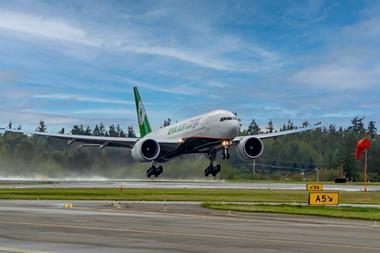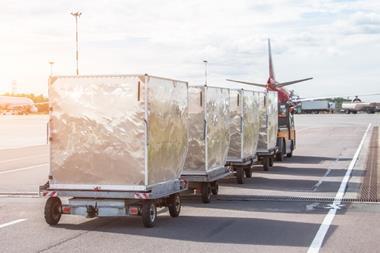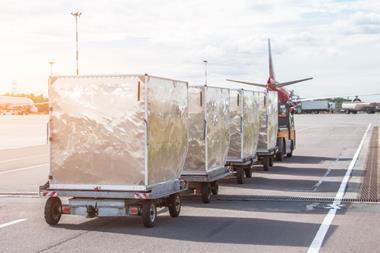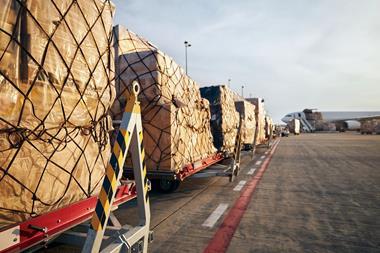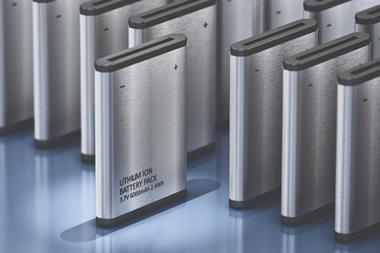IATA has outlined its concerns over potential protectionist measures, while also updating the industry on several key projects.
Speaking at a press conference on the opening day of its World Cargo Symposium event in Dallas, IATA chief economist Brian Pearce reiterated expectations that the air cargo industry will grow by around 4.5% over the coming year.
However, there are some concerns that protectionism could impact growth. This comes after US president Donald Trump signed-off on a 25% tariff on steel products and a 10% tariff on aluminium.
In response, the European Union has threatened retaliatory tariffs on bourbon, peanut butter, cranberries, orange juice, steel, and industrial products. China has said it would issue an "appropriate and necessary response”.
Pearce said that “soft protectionism” had already affected growth over recent years. He said if these measures were not in place, trade could have grown by 9% - twice the level reported over the last five years.
“Protectionism has already had a big impact on the industry,” Pearce said. “Although air cargo has been doing very well as a mode of transport over the last 18 months, if you look at past performance we should really have seen even faster growth in volumes.
“The purpose of talking about [protectionism] is that we as an industry need borders to stay open. This is a thing that is good for living standards everywhere, we are not just talking about the financial performance of the cargo industry.
“Open borders and trade are important for living standards, for economic development and global supply chains.
“What we have heard in terms of protectionism is a concern and we would hope that governments would see the need to keep those borders open.”
Questions next turned to progress in the take-up of electronic air waybills (e-AWB), which has been slower than expected. Usage ended last year at 52.6% and IATA is hoping this will improve to 68% this year.
To help speed up the process, IATA will adopt resolutions requiring an electronic shipment record to be produced, with a paper bill only produced where treaties and other restrictions make that necessary.
IATA head of cargo Glyn Hughes said: “[The adoption of this resolution] is a strong symbolic gesture to say that the industry has now passed over that 50% threshold. It is now important to say that this is the industry’s desired way to do business and this is the way that will facilitate a more effective exchange of information.
“We still recognise that paper air waybvills will be with us for a while because many states have still not ratified the Montreal convention which facilities the removal of paper.
“There are also situations where airlines are not using the same communication protocols, or where Customs codes haven’t been changed, so there are some obstacles to overcome, but it sends a message as an industry that it should be digital first.”
Although Hughes was unable to say when the industry may reach the 100% mark, because of the complexity of some sectors of the industry, he hoped 80% would be achieved over the next couple of years and that progress would begin to accelerate now the 50% mark had been reached.
Linked to digitistion, Hughes was also asked for an update on the progress of its One Record project that aims to move beyond peer-to-peer sharing of information through the development of a centralised platform that can be accessed by all air cargo participants.
Hughes said that meetings had been taking place in the run up to the World Cargo Symposium and an initial principle and outline as to how the project would progress had been created.
This would continue to be moved forward during further discussions during the event and it was hoped that industry participants and technology providers would be able to continue developing the project over the coming months.
Hughes also outlined progress of the Air Cargo Program (IFACP), which was launched in Canada in October last year.
The programme, developed to meet the changing needs of the air cargo industry, will be rolled out globally following the Canadian pilot, and replaces the existing Cargo Agency Program.
Unlike the previous airline-led programme, it will be managed jointly by freight forwarders and airlines as equal partners in the decision-making process.
Hughes said: “The pilot is still underway and we are in the process of evaluating the feedback we have received. The feedback has touched upon the commitment of all the participants – the airlines and forwarders – to work together to jointly manage the industry programme.
“We have also learnt that the role the forwarder plays is very complex, an airline is an airline but a forwarder can be a direct contracting party to the carrier, or in other cases acting on behalf of the shipper.
“We now need to incorporate this into the programme and see how we can tailor the programme to incorporate the various aspects that participants in the industry play.”
Hughes said that in the coming few months the programme will be tweaked and then work can start on looking to progressively roll it out.





